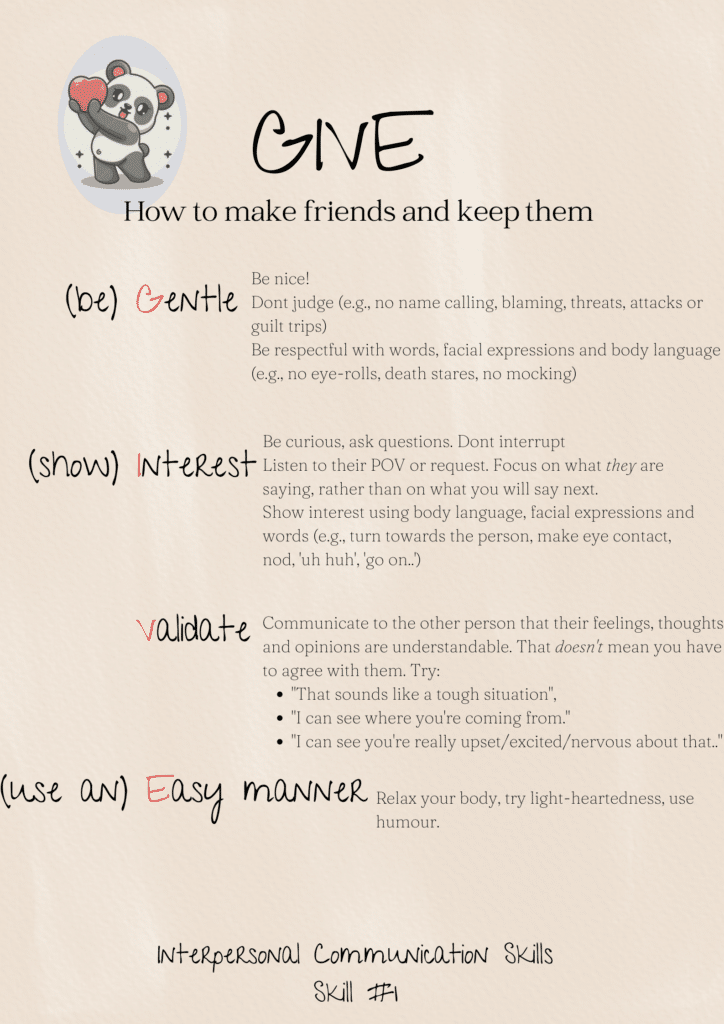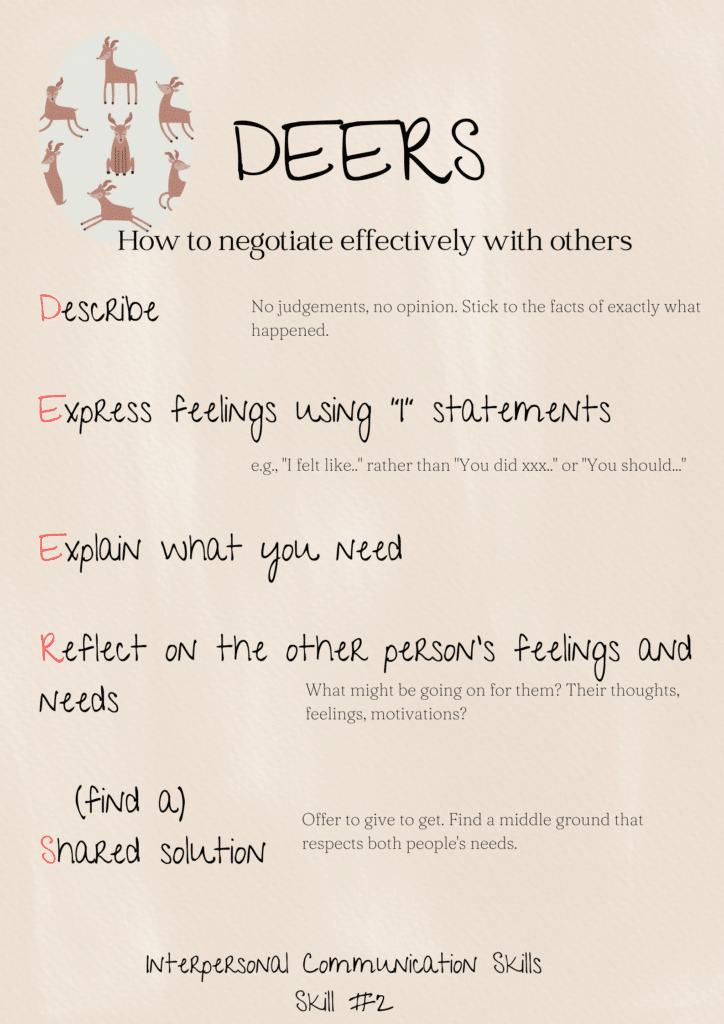I’m Having Friendship Problems

It is super common for friends to have fights or ups and downs. Some fights are small and easy to resolve, and some turn into big issues.
If you can learn a way to “fight well”, then fights can actually be really useful in helping you learn about yourself and your values and finding ways to understand and appreciate someone else’s – making your friendships even stronger.
Here are some tips to “fight well”:
During a fight or conflict
- Keep calm. Take a few breaths, or, if things are getting heated, ask for a time-out so you can both chill. Use gentle body language and words.
- Listen. Often conflict arises when actually both parties agree on the issue – they just misunderstand each other. Really listen to what your friend has to say. Don’t get distracted by what you are going to say back. Reflect back on what she has said to show you have understood.
- Use ‘and’ not ‘but’. Acknowledge your friend’s opinion, then use the word ‘and’ to present yours. This invites compromise (e.g., “You feel xxx AND I feel..” – which recognises that no-ones view is right or wrong, rather both are valid).
- Respond, don’t react. When it gets heated, we’re at risk of saying something we regret. Take a few seconds to offer a thoughtful response rather than a thoughtless reaction. That might mean not responding to a text for a while until you’ve thought it through.
- Stick to ‘feeling’ statements. For example, “I felt xxx when yyy happened.” rather than “I can’t believe you did yyy!”
- Resist the urge to pull other friends into the conflict. Hard, I know.
- Keep it private – don’t post about it on socials. Never has posting about a fight on socials led to anything good. Posting about a fight will make things a whole lot more complicated for you.
Remember your GIVE and DEERS skills – that you’re an expert at now!


After a fight or conflict
- Give yourself time. When we’re stressed out and upset, or brain cant think properly about the problem. Give your brain a chance to chill, then think through what’s happened. You might ask yourself:
- What’s bothering you most?
- Can you check the facts? If your friend’s behaviour doesn’t make sense – then you probably don’t have the whole story. Maybe you need to ask her what else is going on for her (there could be all kinds of things that could have adding to the stress for your friend (or you) that you didn’t recognise at the time, e.g., maybe her parents are separating and she’s stressed, maybe she failed a maths test and was feeling horrible and took it out on you.. try thinking what might have been going on behind the scenes for her. And what might be going on underneath for you..)
- Is there any part of the conflict that you need to own and apologise for? What would you like her to take responsibility for?
- Is this worth losing a friend over?
The outcome
Hopefully, you come through the other end, your friendship as strong as ever. But you might also decide to pull back from your friendship, or not be as close, or have some time apart. This is really common in friendships, but can be really hard. Remember it’s ok to grieve the loss of a friend. You could talk to someone you trust, journal about what’s happened, write an unsent letter to your friend, spend time with other friends, or meet some new people or try something new.
Have you decided to end a friendship? Here’s some ‘break-up’ etiquette you should consider..

Break-up Do's
- Do talk to the person one-on-one.
- Do be respectful about it. Explain why the friendship isn’t working and stick to facts as much as possible.
- Do prepare yourself. Your friend may be angry, have hurt feelings or questions.
- Do stay calm. Try to not get drawn into an argument.
Break-up Dont's
- Don’t break up on social media or in another public way that’s likely to leave the person feeling hurt and humiliated.
- Don’t get someone else to deliver the message for you.
- Don’t list all of your friend’s shortcomings or bring up things they’ve done in the past.
- Don’t gossip about the person or tell others about their flaws.
- Don’t pressure mutual friends to choose sides.
Need more support when you are fighting with a friend click HERE

Year 7 Commissioning: Welcome to Our Newest Leaders
This week, we had the pleasure of formally commissioning our 2024 Year 7 Leaders at an assembly in front of their peers.

Délicieux Discoveries: Students Delve into French Food Culture
Our Year 9 French students are exploring diverse French dishes, recognising the inseparable bond between language and culture.

Santa Maria’s Boarding Mural: A Tapestry of Unity
As part of Boarding Week, our boarders have presented the College with a remarkable art mural which adorns the walls outside the Cafe.
